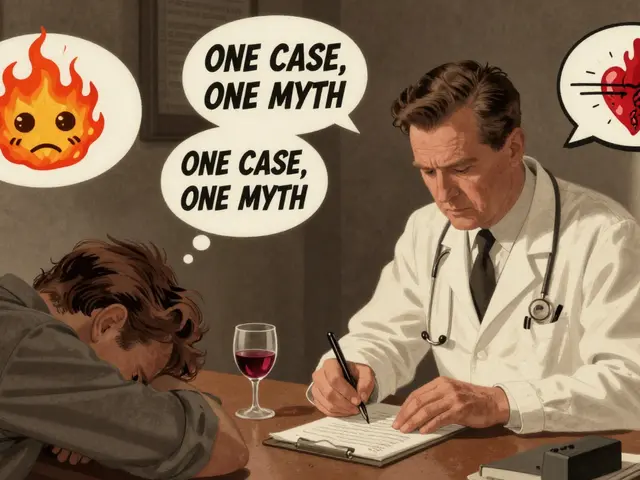Tamoxifen and Metabolism: How Your Body Processes This Breast Cancer Drug
When you take tamoxifen, a selective estrogen receptor modulator used to treat and prevent breast cancer. Also known as Nolvadex, it doesn't work by itself — your body has to turn it into active compounds to fight cancer cells. This process is called metabolism, and it's not the same for everyone. Some people break it down quickly, others slowly, and that difference can change how well the drug works — or even if it works at all.
The key player in tamoxifen metabolism is an enzyme called CYP2D6, a liver enzyme that converts tamoxifen into endoxifen, the most powerful active form. If your CYP2D6 enzyme is weak — because of your genes, other medications you're taking, or liver health — you might not make enough endoxifen. That means the drug might not block estrogen as well as it should. Studies show people with poor CYP2D6 activity have a higher chance of cancer returning. On the flip side, some people have super-active CYP2D6 and turn tamoxifen into endoxifen too fast, which can lead to more side effects like hot flashes or mood swings.
Other drugs can interfere with this process. If you're on an SSRI antidepressant like paroxetine or fluoxetine, they can block CYP2D6 and reduce tamoxifen’s effectiveness. Even over-the-counter antihistamines or certain heart meds can mess with it. That’s why it’s not just about taking tamoxifen — it’s about understanding what else is in your system. Your doctor might check your CYP2D6 gene profile if you’ve had trouble with side effects or if your cancer came back despite treatment.
Metabolism isn’t just about enzymes — your age, liver function, and even what you eat can play a role. Grapefruit juice, for example, can slow down how fast your liver processes tamoxifen. Alcohol can stress your liver and make metabolism less efficient. And if you’ve had weight loss surgery or have fatty liver disease, your body might handle the drug differently. It’s not magic — it’s chemistry, and your body’s chemistry is unique.
What you’ll find below are real, practical posts that dig into how tamoxifen interacts with other drugs, how metabolism affects treatment success, and what you can do to make sure it works the way it should. You’ll see comparisons with other breast cancer meds, how liver health ties in, and what to watch for if you’re on multiple prescriptions. This isn’t theory — it’s what matters when you’re trying to stay healthy while taking this drug every day.

Tamoxifen and Weight Gain: Why It Happens and How to Manage It
Tamoxifen can cause weight gain due to slowed metabolism, increased appetite, and fat storage changes. Learn proven strategies to manage it without crash diets or supplements - and how to stay healthy during treatment.
View More




